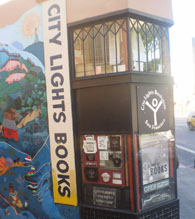
Beyond Essayist Literacy
The Problem with a Single (Essayist) Model of Literacy in FYC
So, what’s the problem with privileging essayist literacy to the point that it’s the only genre students compose in during their first-year writing courses? In the introduction to Writing New Media, Anne Wysocki (2004) reminded us that the material dimensions of the texts we use and produce are not innocent but are embedded with meaning: social, cultural, political, and economic (p. 11). Cynthia Selfe (2004) in the same book asserted that in order “[t]o make it possible for students to practice, value, and understand a full range of literacies—emerging, competing, and fading—English composition teachers have got to be willing to expand their own understanding of composing beyond conventional bounds of the alphabetic” (p. 54). And Marcia Farr and Gloria Nardini (1996) noted that valuing essayist literacy above all else in first-year composition serves to reify dominant expectations and standards while unfairly disadvantaging groups whose literacy practices are incongruent with the courtesies of this form (pp. 116-117). Given the range of technologies available to us—and, more importantly, the range of literacy practices students bring with them into the first-year writing classroom—it is no wonder that sources such as the WPA Outcomes Statement for First-Year Composition encourage experimentation across genre and seem to support this diversity in literacy practices. For instance, the WPA Outcomes Statement (Council of Writing Program Administrators, 2008) advised that students should “write in several genres” (under “Rhetorical Knowledge”), “understand the relationships between language, knowledge, and power” (under “Critical Thinking, Reading, and Writing”), and compose in electronic environments. Additionally, my own experiences as an instructor of writing have taught me some important lessons:
- Students who do poorly in essayist literacy don’t necessarily do poorly in other media forms. Opening up FYC to include other genres and media forms enables students whose strengths lie outside of essayist literacy to shine.
- Secondly, being a good writer means knowing how to identify and respond to the values and expectations of a given audience, and some audiences call for non-essayist literacy forms. It also means being able to employ a variety of cognitive processes, a point Peter Elbow (1985) made in “The Shifting Relationships Between Speech and Writing.” According to Elbow, the most effective writers know how to be careful writers working conceptually through ideas, how to be unprompted and unstructured, and how to talk to their target audiences as they write.
As the diversity of our first-year composition student populations continues to rise, as we continue to serve diverse and non-native speakers of English, it is imperative that we in composition and rhetoric consider methods of composing that grant students agency and that place value on their literacy practices, histories, and experiences.